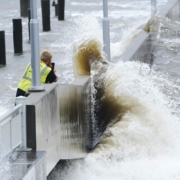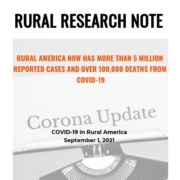Hurricane Ida made landfall in Louisiana, as a Category 4 storm in the early morning of August 29, 2021. More than 1 million customers are experiencing power outages. Ida was downgraded to a tropical storm as it moved northeast, but it has caused major flooding in New York and New Jersey, where the governors have declared emergencies. Central Park received a record breaking three inches of water in one hour. HAC offers the following guide as a source of information for individuals and families dealing with direct housing loss and damage from the storm. For more information, please see HAC’s report: Picking up the Pieces: Restoring Rural Housing and Communities After a Disaster and Disaster Response for Rural Communities Guide.
If your house is inaccessible or currently uninhabitable, emergency, transient housing will likely be made available to provide immediate shelter for those in need. Organizations and resources available to assist with emergency transient housing in previous similar disasters include the Red Cross, Salvation Army, Church World Service, Mennonite Disaster Service, and state- and city-run emergency shelters aimed at housing victims of Hurricane. If you are in need of emergency, transient housing, you can text SHELTER and your Zip Code to 43362 (4FEMA) to find where the shelter closest to you is located.
FEMA makes available temporary assistance funding available for residents of counties affected by hurricanes. Temporary assistance can include grants for temporary housing and home repairs, low-cost loans to cover uninsured property losses, and other programs to help individuals and business owners recover from the effects of the disaster. To see if you are eligible for funding, you can apply online at https://www.disasterassistance.gov/ or call FEMA’s toll-free helpline at 1-800-621-FEMA(3362). When applying, make sure to have a pen and paper as well as the following information: your social security number, current and pre-disaster address, a telephone number where you can be contacted, insurance information, total household income, a routing and account number from your bank if you are interested in having disaster assistance funds transferred directly into your bank account, and a description of your losses that were caused by the disaster.
Tips
Please keep in mind the following safety protocols for hurricanes and flooding:
- Only call 911 if you have an immediate need for medical attention or evacuation assistance.
- If you can’t get through to 911 on first try, keep calling.
- DO NOT DRIVE through high water and DO NOT DRIVE AROUND BARRICADES! Just 2 feet of water can sweep your vehicle away.
- DO NOT WALK through flood waters. Just 6 inches of moving water can knock you down. 4
- If your home floods, STAY THERE. You are safer at home than trying to navigate flooded streets on foot.
- If floodwaters rise around your car but the water is NOT MOVING, abandon the car and move to higher ground. Do not leave the car and enter MOVING water.
- STAY AWAY from streams, rivers, and creeks during heavy rainfall. These areas can flood quickly and with little warning.
- MOVE important items – especially important documents like insurance policies – to the highest possible floor. This will help protect them from flood damage.
- DISCONNECT electrical appliances and do not touch electrical equipment if you are wet or standing in water. You could be electrocuted.
This flooding event is a reminder that all residents in this area should carry flood insurance. Contact your insurance agent for more information about purchasing flood insurance or visit the National Flood Insurance Program at www.fema.gov/national-flood-insurance-program or call 1-888-379-9531. Please keep in mind that new insurance policies take 30 days to go into effect.
If your home has experienced damage, remember to check the outside of your home before you enter. Look for loose power lines, broken or damaged gas lines, foundations cracks, missing support beams, or other damage. It may be safest to ask a building inspector of contractor to check the structure before you enter. Do not force jammed doors open, as they may be providing needed support to the rest of the home. Sniff for gas to ensure there are no natural or propane gas leaks. If you do have a propane tank system, make sure to turn off all valves and contact a propane supplier to check the system before you use it again. Check floors and ceilings to ensure they are not sagging from water damage. This can be especially hazardous. Take photographs of any damage as you may need them for insurance claims or FEMA claims later on.
Resources
Apply for FEMA Assistance by registering online at www.DisasterAssistance.gov. FEMA Disaster Assistance Helpline answers questions about the help offered by FEMA, how to apply for assistance, or the information in your account.
Toll-free helpline: 1-800-621-FEMA (3362)
For hearing impaired callers only:
1-800-462-7585 (TTY)
1-800-621-3362 (Video Relay Service)
Operators are multilingual and calls are answered seven days a week from 7 a.m. to 11 p.m. ET
American Red Cross Disaster Service: For referrals and updates on Red Cross shelter services in your area, locate a local Red Cross office through: https://www.redcross.org/find-help or by calling 1-800-RED CROSS (1-800-733-2767)
The Red Cross helps disaster victims by providing safe shelter, hot meals, essential relief supplies, emotional support and health services like first aid. Trained Red Cross workers often meet one-on-one with families to develop individual plans and identify available resources to help aid recovery.
STATE HOUSING AGENCIES
Louisiana
Louisiana Housing Corporation
2415 Quail Drive
Baton Rouge, LA 70808
Phone: (225) 763-8700
Fax: (225) 763-8710
https://www.lhc.la.gov
Mississippi
Mississippi Home Corporation
735 Riverside Drive
Jackson, MS 39202-1166
Phone: (601) 718-4642
Fax: (601) 718-4643
https://www.mshomecorp.com
New Jersey
New Jersey Housing and Mortgage Finance Agency
637 S Clinton Avenue
Trenton, NJ 08611-1811
Phone: (609) 278-7400
Fax: (609) 278-1754
https://www.njhousing.gov
New York
New York State Homes and Community Renewal
641 Lexington Avenue, 5th Floor
New York, NY 10022-4503
Phone: (212) 688-4000
Fax: (212) 872-0789
http://www.nyshcr.org
DEPARTMENT OF HOUSING AND URBAN DEVELOPMENT STATE FIELD OFFICES
Louisiana
Hale Boggs Federal Building
500 Poydras Street
9th Floor
New Orleans, LA 70130
Phone: (504) 671-3001
Director: Tammy Fowler
Mississippi
Dr. A. H. McCoy Federal Building
100 West Capitol Street
Room 910
Jackson, MS 39269-1096
Phone: (601) 965-4757
Director: Jerrie G. Magruder
New Jersey
Newark Field Office
One Newark Center
1085 Raymond Boulevard
13th Floor
Newark, NJ 07102-5260
Phone: (973) 622-7900
Director: Justin Sheid
New York
Jacob K. Javits Federal Building
26 Federal Plaza
Suite 3541
New York, NY 10278-0068
Phone: (212) 264-8000
Director: Vacant
USDA RURAL DEVELOPMENT STATE OFFICES
Louisiana
Diana Smith, Acting State Director
3727 Government Street
Alexandria, LA 71302
Voice: (318) 473-7920
Fax: (844) 325-6949
www.rd.usda.gov/la
Mississippi
Douglas Simons, Acting State Director
Federal Building, Suite 831
100 West Capitol Street
Jackson, MS 39269
Voice: (601) 965-4316
Fax: (601) 965-4088
www.rd.usda.gov/ms
New Jersey
Brandon R. Pfeilmeier, Acting State Director
521 Fellowship Road, Suite 130
Mt. Laurel, NJ 08054
Voice: (856) 787-7700
Fax: (855) 305-7343
www.rd.usda.gov/nj
New York
Brian Murray, Acting State Director
The Galleries of Syracuse
441 South Salina Street, Suite 357
Syracuse, NY 13202-2541
Voice: (315) 477-6400
Fax: (315) 477-6438
www.rd.usda.gov/ny
STATE EMERGENCY MANAGEMENT AGENCIES
Mississippi Emergency Management Agency
Voice 601-933-MEMA
24 hour emergency line: 1-800-222-MEMA(6362)
https://www.msema.org/
Louisiana Governor’s Office of Homeland Security and Emergency Management
7667 Independence Boulevard
Baton Rouge, LA 70806
Voice: (225) 925-7500
Fax: (225) 925-7501
http://gohsep.la.gov/
New Jersey Office of Emergency Management
http://www.ready.nj.gov/
New York Homeland Security and Emergency Services
http://www.dhses.ny.gov/oem/


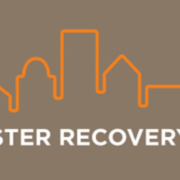

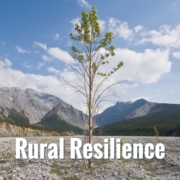 Housing Assistance Council
Housing Assistance Council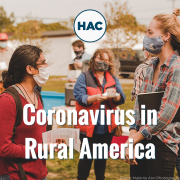
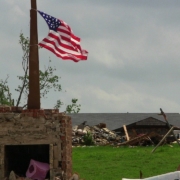
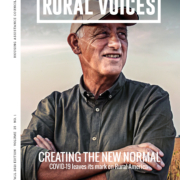
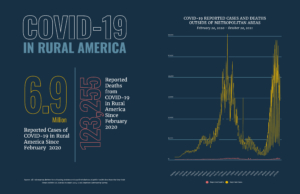
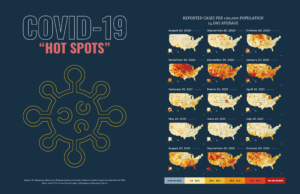
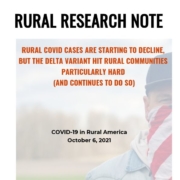 HAC
HAC